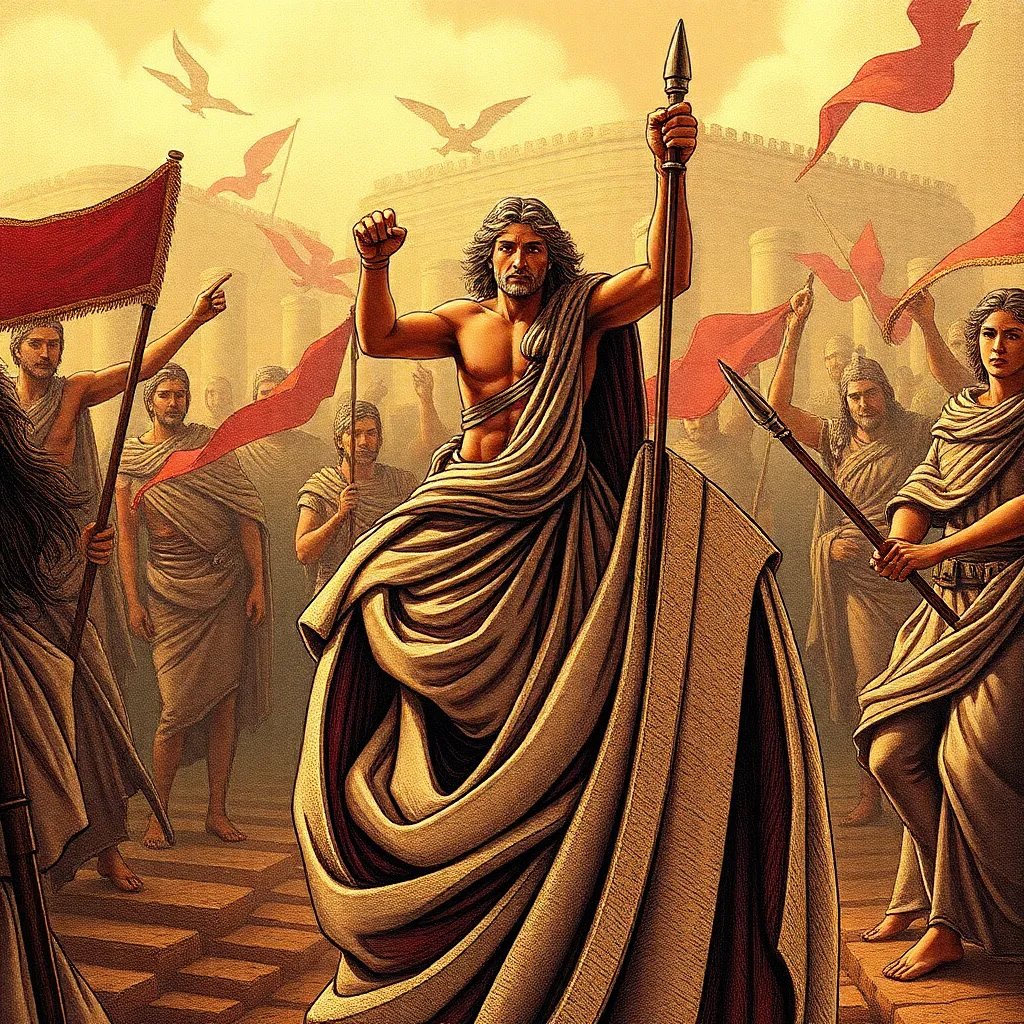Odysseus and the Trojan War: The Man Behind the Myth
I. Introduction
The Trojan War is one of the most significant events in Greek mythology, a tale of heroism, betrayal, and the complexities of human nature. This epic conflict, fought between the city of Troy and the Greek states, has captivated audiences for centuries, primarily through the works of Homer. Among the myriad of characters that emerge from this legendary narrative, Odysseus stands out as a central figure whose adventures and characteristics have left an indelible mark on both mythology and literature.
This article aims to explore the historical and mythological dimensions of Odysseus, delving into his role in the Trojan War, his subsequent adventures in “The Odyssey,” and the enduring legacy of his character in literature and culture.
II. The Historical Context of the Trojan War
The Trojan War is often considered a blend of myth and history, with various theories surrounding its actual occurrence. Scholars debate whether the war was a historical event or a mythological construct, with archaeological evidence providing insights into the possible realities behind the legend.
- Historical Theories: Some historians suggest that the Trojan War may have occurred around the late Bronze Age, around the 12th century BCE, with conflicts arising over trade routes and territorial disputes.
- Archaeological Evidence: Excavations at Hisarlik in modern-day Turkey have revealed layers of settlement, including signs of destruction that some believe correspond to the timeline of the Trojan War.
- Significance in Greek Culture: The Trojan War not only serves as a backdrop for many Greek myths but also symbolizes the values of heroism, honor, and the consequences of pride and vengeance.
III. Odysseus: The Hero of the Iliad
In Homer’s “Iliad,” Odysseus plays a crucial role as a wise and strategic leader. He is often depicted as a man of intellect and resourcefulness, qualities that set him apart from other heroes.
- Role in the Iliad: Odysseus is portrayed as a key advisor to Agamemnon and a formidable warrior. His counsel is sought in critical moments, showcasing his ability to navigate the complexities of war.
- Key Characteristics: Odysseus embodies traits such as cunning, bravery, and adaptability. His intelligence often leads to innovative solutions, earning him the title of “the cleverest of the Greeks.”
- Relationships: His interactions with other key figures, such as Achilles and Agamemnon, highlight his diplomatic skills and the importance of alliances in warfare.
IV. The Journey of Odysseus: The Odyssey
Following the fall of Troy, Odysseus’s journey home is chronicled in “The Odyssey,” an epic that explores themes of perseverance, identity, and the human condition.
- Summary of Adventures: Odysseus encounters a myriad of challenges, including the Cyclops, Sirens, and the wrath of Poseidon. Each adventure tests his resilience and wit, making his journey a profound exploration of heroism.
- Themes: The themes of cunning, endurance, and identity are prevalent throughout “The Odyssey.” Odysseus’s cleverness allows him to survive perilous situations, while his longing for home underscores his humanity.
- Intersection of Myth and Morality: The epic serves not only as a tale of adventure but also as a moral lesson about the virtues of patience, loyalty, and the consequences of one’s choices.
V. The Character of Odysseus: Man vs. Myth
Odysseus is a complex character whose personality traits oscillate between admirable and flawed, providing a rich ground for analysis.
- Personality Traits: Odysseus exemplifies intelligence and bravery; however, he also displays hubris and sometimes questionable morality, particularly in his interactions with others.
- Role of Fate and the Gods: The intervention of gods like Athena and Poseidon highlights the themes of fate and divine influence, suggesting that while Odysseus is clever, his journey is also dictated by forces beyond his control.
- Historical vs. Mythological Interpretations: Historical interpretations of Odysseus as a leader contrast with the mythological narrative that often exaggerates his abilities and encounters, blurring the lines between reality and legend.
VI. Odysseus in Later Literature and Culture
The legacy of Odysseus extends far beyond ancient Greece, influencing countless works in literature and art throughout history.
- Influence on Literature: Odysseus’s character has inspired numerous adaptations, from Virgil’s “Aeneid” to James Joyce’s “Ulysses,” showcasing his impact on narrative structures and character development.
- Modern Adaptations: Contemporary interpretations of Odysseus often reflect current societal values and struggles, reimagining his journey in various contexts, including films, novels, and theater.
- Lasting Legacy: Odysseus remains a cultural icon representing the archetype of the hero who navigates adversity with intelligence and determination, resonating with audiences across generations.
VII. The Lessons of Odysseus: Leadership and Human Experience
Odysseus exemplifies important leadership qualities that transcend time and culture, offering valuable lessons for contemporary society.
- Leadership Qualities: His ability to strategize, inspire loyalty, and adapt to changing circumstances illustrates essential traits of effective leadership.
- Universality of Struggles: The challenges Odysseus faces reflect universal human experiences, including the search for identity, the quest for home, and the navigation of moral dilemmas.
- Relevance Today: Themes from Odysseus’s journey resonate in modern discussions about resilience, ethical leadership, and the complexity of human nature.
VIII. Conclusion
Odysseus stands as a pivotal figure in both history and myth, embodying the virtues and flaws of the human condition. His significance in the Trojan War and his subsequent adventures in “The Odyssey” reveal a character that is both timeless and deeply relatable. The enduring nature of his story invites continual exploration of the complexities of mythological figures and their relevance to our understanding of human experience.
As we reflect on Odysseus’s journey, we are reminded of the intricacies of leadership, the importance of perseverance, and the universal struggles that define us all. The exploration of such mythological figures continues to enrich our understanding of history, culture, and the human spirit.




